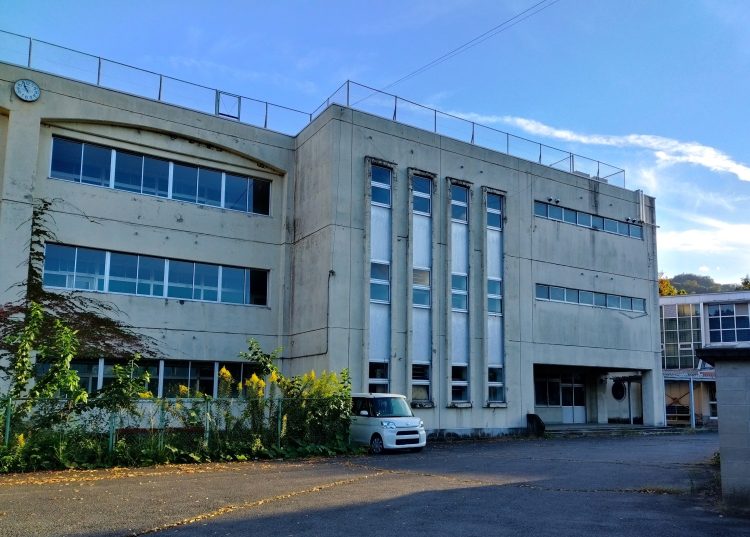Should Only Education in School Count? ~ How Can We Protect the Dignity of Citizens? The Value of Civic Engagement is Questioned. InsightsEssays: Civil Society in Japan
Posted on January 29, 2024
Japan NPO Center (JNPOC) has a news & commentary site called NPO CROSS that discusses the role of NPOs/NGOs and civil society as well as social issues in Japan and abroad. We post articles contributed by various stakeholders, including NPOs, foundations, corporations, and volunteer writers.
For this JNPOC’s English site, we select some translated articles from NPO CROSS to introduce to our English-speaking readers.
Should Only Education in School Count? ~ How Can We Protect the Dignity of Citizens? The Value of Civic Engagement is Questioned.
Mayor Ogura of Higashi-Omi City, Shiga, commented that he was dismayed that the Ministry of Education, Culture, Sports, Science and Technology (MEXT) had approved free schools (which are non-accredited alternative schools in Japan operated by private organizations), at a meeting attended by the prefecture’s mayors on Oct. 17, 2023. He added that the free schools could undermine the very foundation of the nation. A few of the other mayors present also questioned the wisdom of subsidizing these schools. Afterward, Mayor Ogura remarked to the press corps, “School avoidance is a manifestation of children’s selfishness, and most of the responsibility lies with their parents.”
The right to receive education is guaranteed equally to all citizens by the Constitution of Japan and the Basic Act on Education. In addition, in 2016, the Act for Securing Educational Opportunities (Act for Securing Educational Opportunities Equivalent to Regular Education at the Stage of Compulsory Education) was enacted in response to the increasing number of children who have difficulty in attending school due to school avoidance, poverty, and other reasons. What I find quite disturbing is that the aforementioned remarks were made by a mayor despite these laws. They represent the mayor’s disregard for respecting basic human rights and are an affront to the dignity of citizens. The remarks have been widely criticized; however, he has not retracted them to this day. We should not take them and the thinking behind them as mere anachronism, but rather as something that threatens not only the dignity of children but also that of all people, including the socially vulnerable and those with addictions, diseases, and other difficulties in life.
Recently, MEXT released the preliminary results of the “FY 2022 Survey on Problematic Behavior and School Avoidance among Students.” It reads that the number of school-avoidant children (*1) exceeded 299,000, an increase of 50,000 from the previous fiscal year, and the number has been increasing steadily for the past 10 years. This number is about three times the total population of Higashi-Omi City. It is too large to be dismissed as “children’s selfishness and their parents’ responsibility.” Unless public-private partnerships are quickly put in place to provide a secure environment for these children, it will be impossible to protect their dignity.
Meanwhile, school education is facing daunting challenges. There is a shortage of several thousand teachers in schools nationwide, the number of non-permanent teachers is increasing year by year, and their long working hours remain unchanged despite the school-based extracurricular activities being delegated to local communities in order to promote reforms in the way teachers work. In addition, the competition rate for teacher recruitment examination has been declining, and some boards of education have begun recruiting students during their third year of university instead of last. On the other hand, the number of harassment cases are increasing in which teachers are implicated as the harassers. Under these circumstances, can it be really appropriate to say that school education is the foundation of the nation? Rather, the school education system, which the mayor might consider to be impeccable as the national foundation, appears to be on shaky ground. Could it be that the sensitive amongst the children are unconsciously detecting its vulnerability and their behavior betrays such inner suspicion? The mayor’s attitude and statement seem so irresponsible; he should have visited the schools and faced up to the reality. Such thinking as his could lead to systems and policies that fail to protect the dignity of citizens as well as children. Has he not been informed that some forward-looking municipalities are introducing learning vacations (*2)?

The world changes quickly, and it is the role of the national and local authorities to create policies that respond to the changes. In doing so, they are expected to act with the dignity of citizens in mind. Citizens should opt for such politics because their partaking could lead to the diverse environments where children, who will lead the next generation, can learn without difficulty and to the protection of their basic human rights. I wonder it might also bring about the opportunity for real-life education for them.
*1: School avoidance is defined by MEXT as being absent from school for 30 days or more per year because of inability or unwillingness to attend school due to psychological, emotional, physical, or social factors or backgrounds, excluding those due to illnesses or economic reasons.
*2: A new system that allows children to take three weekdays off from school a year for family trips to coincide with the day-offs of their parents.
Original text by Yoshifumi Tajiri (Executive Director, JNPOC) originally posted on October 10, 2023; translated by JNPOC.
Recent Articles
- Shared solutions, stronger communities: Social economy and social innovation in Europe and Japan
- NPO support for disaster victims: Key discussion points
- Beyond support: Fostering genuine dialogues
- Reconsidering the significance of public comments
- Towards a society where children want to embrace life
- The Evolution of Philanthropy: Five approaches shaping contemporary practice